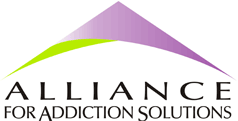A Recovery Story From Vonda Schaefer
- Alliance for Addiction Solutions
- Feb 11, 2020
- 3 min read

The following alcoholic client's story is provided by Vonda Schaefer MFT, NTS nutritionistherapy.com
As the mother of a young child, sobriety was important to Sheila. The first year was pretty easy, but when she first came to my office, she had had one relapse and divulged that she was plotting a way to secretly drink again. In my assessment, I asked her exactly when sobriety became more difficult. It was around her one year sobriety anniversary. Further investigation also revealed that her diet changed at this time. She had started a program that required giving a point value to foods and which gave her a certain point maximum per day.
Then I knew why she was struggling with sobriety.
When she stopped drinking, food became the way she targeted those “feel good” neurotransmitters in her brain. Neurotransmitters are responsible for our ability to feel pleasure, comfort, and calm - basically all things good in life. Food was literally making her “ok” and had replaced the alcohol that was previously doing this for her.
Alcohol boosts Neurotransmitters (temporarily)
Reading through the assessments she had filled out, I could see she was especially using alcohol for dopamine/endorphin deficiency. She needed a “reward” after a hard day of accomplishment. We tried an amino acid in the office called DLPA and she felt “ more relaxed/less anxious,“ as well as “ more emotionally stable.“ Before she left, I reminded her that even one drink is a slippery slope and could she make a plan for the evening - such as call a sober friend - and directed her to email me the next day and let me know how she felt and how the evening went. I also told her “no more dieting” - sobriety trumps everything and that we would start some targeted supplements, that for now she should eat what she wanted as long as she included protein and fat in every meal.
The next day, Sheila emailed me as promised and said that that evening she spent with a sober friend, forgot about the alcohol, ate well and actually didn’t think about food or her usual caffeine after dinner.
This is a story I was not surprised by as I have helped multiple clients in their quest for sobriety from all kinds of substances. Of course, this is the beginning of a journey with Sheila but she now has the tools to be successful.
Deprivation Does Not Work
Deprivation does not work - in dieting or in sobriety. Finding the root cause - the deficiency of biology - is the only way to stop the physical cravings. The cravings are there because our bodies need something. Cravings are our body’s way of communicating to us, and if we listen, we figure out what it needs.
Addiction Meets a Need
We can fill up on cupcakes instead of chicken salad, but there are consequences to our choices. It is not just about choices and willpower, but about balancing the body’s chemistry. When the body’s chemistry is balanced, chicken salad is more appealing than cupcakes (I promise this happens).
If you are struggling with the shame or guilt of not being able to stick to whatever you are depriving yourself of, look deeper or get help from a knowledgeable practitioner who can look deeper, to see what your body needs to help your journey.
Alliance Member, Vonda Schaefer, MFT, NTS vondaschaefer.mft@gmail.com nutritionistherapy.com Orinda, CA





























